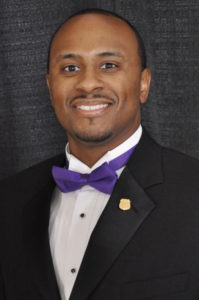Guest Column

Will Jemison
By Will Jemison
In the fall of 2003, I was one of 12 Americans selected to spend two weeks exploring the rural former East German countryside and to attend an educational symposium at a local university. Although I’d heard of the many examples of cultural oppression that occurred during years of communist rule and Russian influence, nothing prepared me for my arrival at the hotel and special instructions for the black, Chinese and Indian students in my cohort learning that we would have to register at the local police station. This registration wasn’t to single us out as some sort of threat, but was to protect us from what we soon discovered was a skinhead rally that was planned for the town we were visiting.
At the age of 22, overt racism was foreign to me. I grew up and attended diverse schools, had school friends of multiple ethnic backgrounds and it was fairly common for folk of different races to be guests in our home. Although I was aware of the historical struggles of my parents, grandparents and ancestors, racism, as it had been defined to me, wasn’t something I knew. That changed for me on a very cool day in Germany in 2003.
What also changed for me was the belief that racism was something that was strictly about overt acts. The white nationalists of Germany not only sought to have a direct impact on blacks, Asians and Jews, they sought to ensure that more covert acts would be normalized by the government to ensure they would no longer need swastikas, or in America’s case, hoods, to show their impact.
Those covert acts included: sanctioned methods of housing discrimination, increased restrictions on university admissions and “native” first employment policies. Each of those acts, if enabled, sought to gradually reduce the economic and social progress of racial and ethnic minorities in Germany and place them in a sort of second class status.
White nationalism is racism. It’s racism rooted in violence and fear, and in the case of the Ku Klux Klan, one that seeks to destroy any group they don’t agree with, including Catholics.
By now, we’ve all heard of the events in Charlottesville, Va. A rally of racists, ironically armed with Asian-made tiki torches, marched for greater rights and to protect symbols of their Confederate “heroes.” Hopefully, the irony of them rioting over symbols of traitors to the American union isn’t lost on you. For those it isn’t, the Confederacy’s purpose was to undermine the American democracy and ensure slavery remained legal in what became present-day Southern states.
The notion of upholding symbols of the confederacy, whether it be a flag or a statue, is diametrically opposed to everything we as good Americans and Christians should value. Erecting monuments to traitors is akin to placing a statue of Benedict Arnold in the halls of Congress or of Lucifer in a church. However, this is exactly what we’ve allowed to occur. The perception of white supremacy has corrupted our political and social structures in this state and our country.
It’s this perceived supremacy that gave us the Southern Strategy. The Southern Strategy was created in resistance to civil rights legislation and has been used to justify inaction, gerrymandering and a plethora of societal ills. During the 1950s and 60s, these monuments to confederate traitors were constructed, not to be reminders of great men, but to remind increasingly well-educated Negroes of their place. The Southern Strategy is also what gave rise to Donald Trump and his empty promises of border walls and immigration quotas that explicitly target black and brown people. The same Trump who himself lacks the moral and ethical competence to reject racism in all forms. Yes, the Southern Strategy continues to show its influence and last week, that influence gave rise to Charlottesville.
This strategy is continuously present in this state whether through legislation that seeks to ensure substandard education of our youth or to provide state-sanctioned discrimination against our LGBTQ brothers and sisters. As Catholics, we should be alarmed at these increasingly overt acts of discrimination by our legislators because they directly oppose the Gospel.
It also finds expression in the refusal to welcome the stranger and the alien and to treat them with compassion and justice and further expression in the obstinacy of many who are deeply concerned about unborn children but callous and skeptical as young men and women of color are seemingly killed with impunity.
In recent days when the holder of our highest political office has condoned and equated Neo-Nazis, the KKK and other white supremacists with those protesting their heinous ideology, I am reminded of the courage of the modern German people who have unabashedly acknowledged their past and become one of the world’s most humane and welcoming nation states.
Our Holy Father, Pope Francis, from the beginning of his papacy has called upon Catholics, other people of faith and people of good will to embrace the radical call of Jesus of Nazareth to see all people as images of a God who loves all of us beyond measure and without limits. That insight is found in the foundational documents of our country in light of recent events, may we all strive to live that truth with even more fervor.
(Will Jemison is coordinator for Black Catholic Ministry for the Diocese of Jackson)
